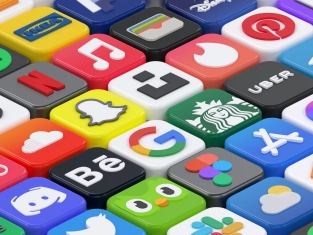by PushtoLearn
Unit 1 - Welcome
Table of Contents
Unit 1, English for IT Exercises and Flashcards
These exercises focus on Unit 1, English for IT
Wordlist for Unit 1, English for IT
|
Word |
Definition |
Example |
|
app (application) |
a software program which allows a user to perform specific tasks such as word processing, email, accounting, database management |
Examples of popular applications include Microsoft Word, Adobe Photoshop, and Mozilla Firefox. |
|
component |
any device internal to the computer, such as a primary hard disk drive or motherboard |
A hardware geek is constantly upgrading components in his computer to achieve more performance. |
|
computer |
an electronic, digital device that stores and processes information |
A computer needs to be replaced or upgraded regularly or it will become obsolete. |
|
data |
literally meaning 'that which is given', this term refers to raw information of any kind |
The network administrator was fired when he lost all the company data by accidentally formatting the wrong hard disk drive array. |
|
database |
an organized, electronic collection of information optimized for fast access and typically consisting of rows, columns, indexes, and keys |
The international company stored their customer information in a central database in Brussels. |
|
hardware |
physical things that make up a computer, such as a component or a peripheral |
Hardware today has become such a commodity that it's often more expensive to repair it than to replace it. |
|
Internet |
the largest known public network in the world, connecting millions of computers around the world |
Some people refer to the Internet as an information superhighway. |
|
network |
a group of connected computers which share resources |
The company network consisted of 3 servers, 95 workstations, and 10 printers. |
|
peripheral |
an external computer add-on, such as a printer or a scanner; also known as an 'accessory' |
The woman hated the look of all the tangled wires behind her desk, which were caused by so many peripherals. |
|
software |
any program designed to run on a computer |
The geek purchased new software for his computer almost every weekend. |

FAQ
What is the difference between hardware and software?
Hardware refers to the physical components of a computer, such as the processor, memory, and peripherals. Software includes the programs and applications that run on the hardware, like operating systems and productivity tools.
How do apps differ from traditional software?
Apps are a type of software designed for specific tasks, often optimized for mobile devices or cloud-based platforms. Traditional software may include larger, more complex programs used on desktops and enterprise systems.
Why is data important in IT?
Data is the backbone of computing, analytics, and decision-making. It powers databases, applications, and AI-driven technologies, making it crucial for businesses and IT professionals.
What role do networks play in IT?
Networks connect computers, devices, and servers, allowing for communication, data transfer, and resource sharing. They are essential for everything from Internet access to enterprise systems.
What are peripherals, and why are they important?
Peripherals are external devices connected to a computer, such as keyboards, printers, and external storage. They enhance functionality and improve user experience in both personal and professional computing.
